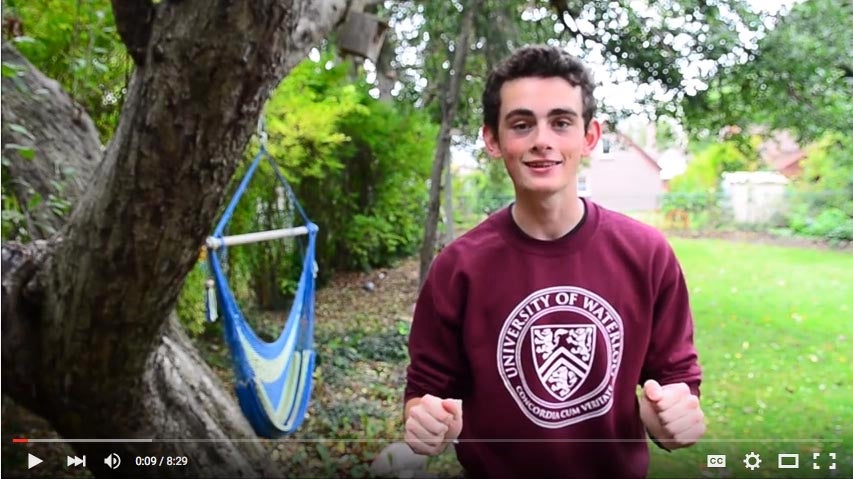John Fish could end up travelling to the Silicon Valley later this week as the winner of the Breakthrough Junior Challenge. He is one of the 15 finalists out of more than 2,000 students from 86 countries, and only one of two Canadians to get this far in the annual challenge that invites students, ages 13-18, to share their passion for math and science with the world through video.

“Martin [Laforest] gave an incredible explanation of the EPR paradox and helped us understand the math behind the problem when we were at QCSYS,” said Fish. “With that understanding, I tried to tackle it in a more intuitive sense that could be understood by somebody without a math background.”
Fish has been passionate about the quantum world since grade 7 and he’s been teaching himself the concepts and mathematics behind it. While attending the University of Waterloo Catalyst program, he toured the Institute for Quantum Computing and heard about the QCSYS program.
A fan of Veritasium and Numberphile videos, after attending QCSYS, Fish felt that he could make a really good science video. The Breakthrough Junior Challenge gave him a reason to try it out.
First Fish had to make it through the Peer-to-Peer Review where he was judged on four criteria: engagement, illumination, difficulty, and creativity. Fish also needed to review other contestants’ videos.
He made it through that round as well as an expert review by an evaluation panel. The finalist, who will be named on November 8 via live broadcast on National Geographic Channel at 10:00 p.m. ET, will be chosen by the selection committee which includes Sal Khan, Lucy Hawking, and Breakthrough Prize Laureates.
If Fish wins, he will have the opportunity to meet with giants of science, technology, media and the arts in California and win a $250,000 post-secondary scholarship. His teacher could win a $50,000 education grant, and his school could win a cutting-edge $100,000 Breakthrough science lab designed in partnership with Cold Spring Harbor Laboratory.
“Winning the whole thing would be incredible. First of all, the scholarship would obviously be nice. But more than that, I think it would be a wonderful thing to be seen as an excellent junior STEM educator.”